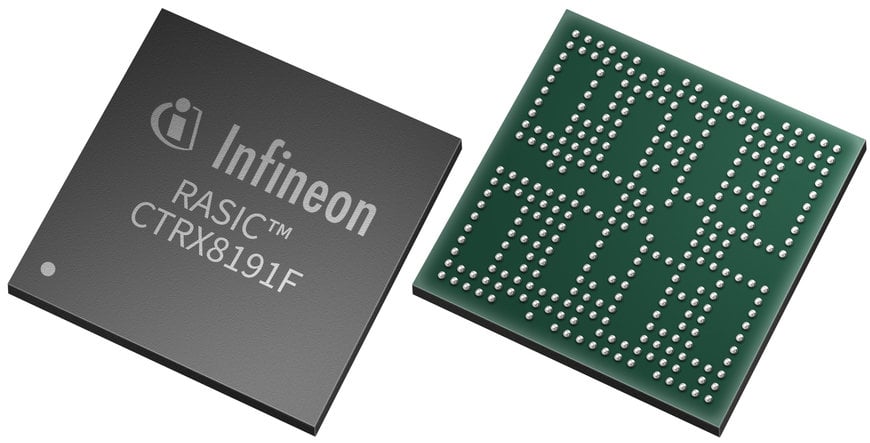Infineon's new radar MMIC RASIC CTRX8191F enables the next generation of 4D and HD imaging radars
The ability to detect pedestrians in dense urban environments is currently a challenge to enable the next level of automated and autonomous driving.
www.infineon.com

To meet the demands of SAE-defined L2+ to L4 autonomous driving, the development of a new generation of 4D and imaging radars is crucial. That’s why Infineon Technologies AG (FSE: IFX / OTCQX: IFNNY) is releasing the final samples of its RASIC™ CTRX8191F, a new state-of-the-art 28nm radar MMIC. The CTRX8191F was specifically designed to meet the requirements of automated and autonomous driving and offers high performance at low system cost. As a result, the device enables the development of next-generation radar imaging modules.
The CTRX8191F radar MMIC offers higher performance, and an even better signal-to-noise ratio compared to previous generations. This level of performance is required to detect vulnerable road users and vehicles at a distance of up to 380 meters, using system configurations with eight transmitters and eight receivers. The RASIC MMIC enables cascading of multiple devices at low frequencies, reducing the need for expensive RF materials on the circuit board. In addition, the CTRX8191F features an optimized launcher-on-package design that facilitates the use of low-cost waveguide antennas. Furthermore, its state-of-the-art digital PLL offers high flexibility in generating complex waveforms with the shortest flyback time on the market (<1 µs).
In addition, Infineon offers a comprehensive radar development kit called CARKIT to facilitate the rapid design and deployment of radar systems. CARKIT is based on the CTRX8191F sensor prototyping module, which supports various system configurations, including the transmission of raw ADC data, FFT intermediate results or radar detections via a Gigabit Ethernet interface. The included example code and graphical user interface enable rapid prototyping and design, allowing developers to implement their radar system concepts quickly and efficiently.
Also included is a waveguide antenna that can be easily replaced with a custom antenna to meet specific customer requirements. Several versions of CARKIT are already available, including a next-generation 4D front radar configuration with eight transmitters and eight receivers, and a cost-effective corner/front radar solution for the standard market with four transmitters and four receivers.
www.infineon.com

